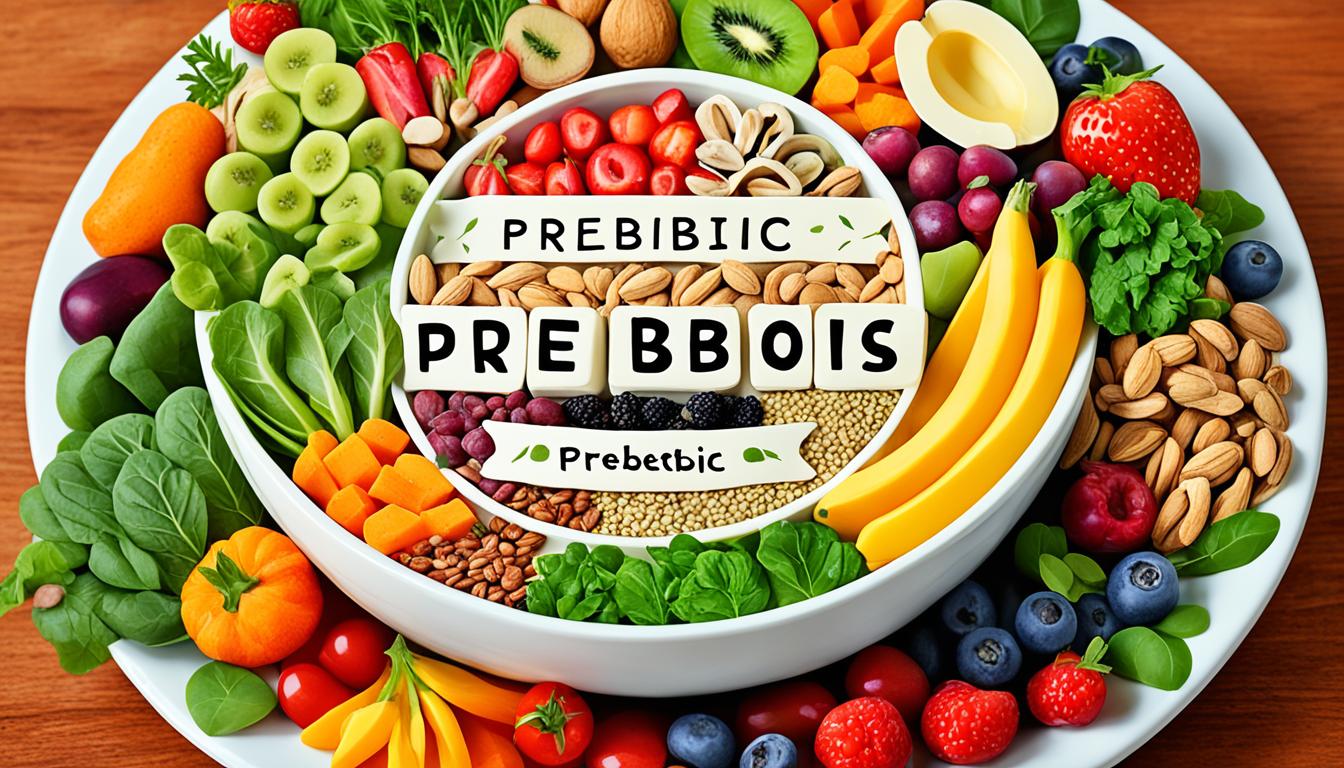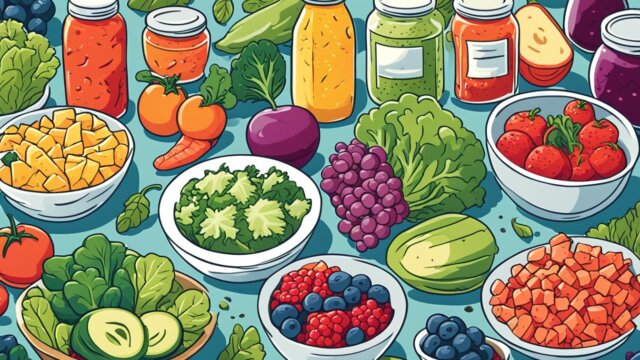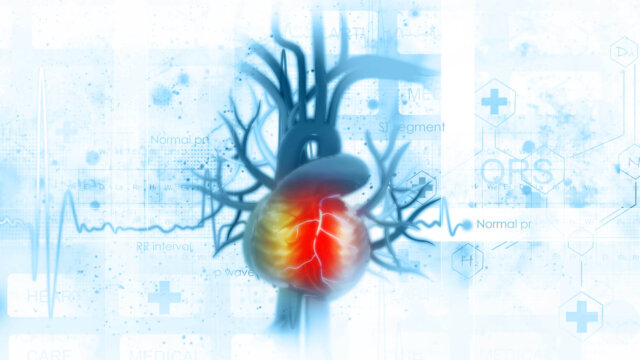FTC disclaimer: This post may contains affiliate links and we will be compensated if you click on a link and make a purchase.
Did you know that a huge 68% of chicory root’s fiber is prebiotic inulin? This fact shows how powerful prebiotics are for your gut health. Prebiotics feed the good bacteria in your gut, helping them grow and offer many benefits.
Prebiotics are not the same as probiotics, which are live bacteria found in foods or supplements. Prebiotics are what these good bacteria eat. Adding more prebiotics to your diet can make your gut healthier. This leads to better digestion, stronger immunity, and even better mental health.
Key Takeaways
- Prebiotics are a type of dietary fiber that feed the good bacteria in your gut.
- Prebiotics differ from probiotics, which are the live bacteria and yeasts that can be consumed.
- Consuming more prebiotics can support a healthy gut microbiome and provide numerous health benefits.
- Prebiotic-rich foods include chicory root, garlic, barley, cocoa, burdock root, wheat bran, seaweed, and avocados.
- Incorporating prebiotics into your diet is a natural way to boost your gut health.
What are Prebiotics?
Prebiotics are a special kind of fiber that your body can’t digest. They are not like probiotics, which are live bacteria and yeasts that help your health. Prebiotics feed the good bacteria in your gut.
When prebiotics get to the lower part of your digestive system, they get broken down by the good bacteria there. This helps the good bacteria grow and work better.
Difference Between Prebiotics and Probiotics
Prebiotics and probiotics are both key for gut health but they do different things. Probiotics are live microorganisms that make it through stomach acid and bile to the colon. There, they help your health.
Prebiotics feed the probiotic bacteria already in your gut. Think of prebiotics as the “fertilizer” for probiotics, helping them grow and spread.
Some common prebiotics are inulin, fructooligosaccharides (FOS), and galactooligosaccharides (GOS). These fibers help with bowel movements, mood, appetite, bone health, immune function, and reduce inflammation.
Adding both prebiotics and probiotics to your diet can boost your gut health and overall health.
Benefits of Prebiotics
Eating prebiotics every day can boost your health and happiness. Prebiotics are a special kind of fiber. They feed the good bacteria in your gut, making your gut microbiome healthy and diverse. This helps your digestion, metabolism, and bone health.
Prebiotics do more than help your gut. They can also control blood sugar, make insulin work better, and help with hunger control. They can also lower inflammation and make your immune system stronger. Plus, they can reduce the risk of heart disease and make you feel less stressed.
Good sources of prebiotics are legumes, beans, peas, oats, bananas, berries, garlic, onions, apples, and chicory root. These foods can help make you feel full by boosting certain hormones.
Prebiotics are not the same as probiotics. Probiotics are live bacteria, but prebiotics feed these good bacteria. The International Scientific Association of Probiotics and Prebiotics has rules for what makes a compound a prebiotic.
Adding prebiotic-rich foods to your meals can make your gut microbiome healthy. This can lead to better digestion, metabolism, and a stronger immune system.

Prebiotics and Gut Health
Gut Microbiome and Its Importance
The human gut is home to trillions of tiny living things like bacteria and viruses. These tiny friends are key to our health. They help keep us healthy and can lower the risk of many diseases. Sadly, over 60% of adults in the U.S. have had a gut issue in the last week.
Our gut can change based on what we eat. Foods high in fiber and prebiotics can make our gut better. Prebiotics feed the good bacteria in our gut, helping them grow and keep us healthy.
Having a healthy gut is vital for many things like fighting off sickness and feeling good. By eating foods with prebiotics, we can help our gut stay healthy.
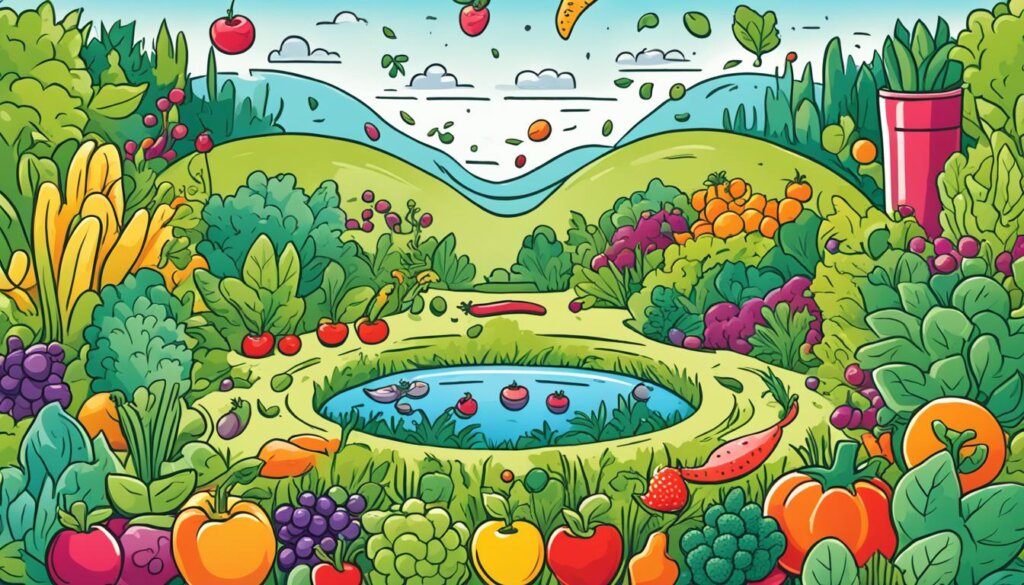
“Gut health is the foundation for overall health and well-being. Nurturing a diverse and thriving gut microbiome through the incorporation of prebiotics and other gut-supporting nutrients is key to maintaining optimal physical and mental health.”
Signs of an Unhealthy Gut
An unhealthy gut shows in many ways, like digestive issues and skin problems. It can also affect your mood and weight. These signs show your body’s balance is off.
Issues like irritable bowel syndrome or constipation can mean your gut health is poor. Feeling tired or having trouble sleeping can also be linked to gut problems.
Skin rashes and allergies might mean your gut needs help. So can autoimmune conditions like thyroid issues or type 1 diabetes. Unexplained weight changes could also be a sign.
Your mood can be affected by your gut health too. Feeling down or anxious without a clear reason might be linked to it. Craving more sugar could also point to gut issues.
These signs show how important our gut is for our health. Knowing these symptoms lets you help your gut and better your life.
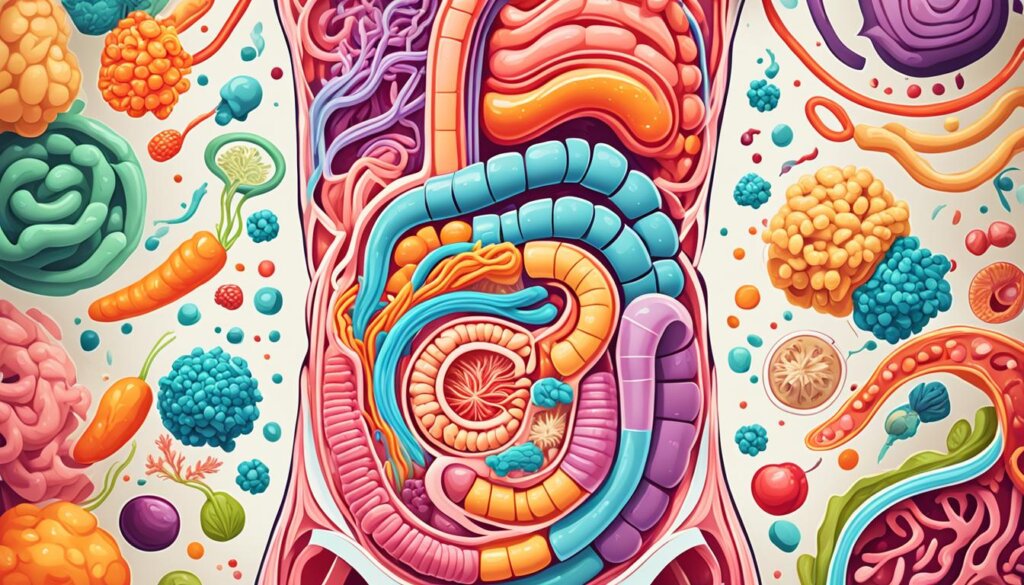
Symptom | Potential Cause |
|---|---|
Digestive issues | Imbalance in gut bacteria |
Sleep disturbances | Gut-brain axis imbalance |
Skin conditions | Gut-skin axis imbalance |
Autoimmune disorders | Gut bacteria imbalance |
Mood disorders | Gut-brain axis imbalance |
Unexplained weight changes | Gut microbiome imbalance |
Knowing the signs of an unhealthy gut helps you support your gut health. This can make you feel better overall.
Improve Your Gut Health Naturally
Keeping your gut healthy is key for feeling good. You can do this with simple changes in your life and diet. These changes help keep your gut bacteria balanced. This leads to better digestion, absorbing nutrients, and a strong immune system.
Stress can hurt your gut health. It messes with the balance of gut bacteria, causing inflammation. To help, try yoga, meditation, or deep breathing to lower stress and keep your gut healthy.
Getting enough sleep is also vital for your gut. Try to sleep 7-9 hours each night. Poor sleep can change gut bacteria, cause inflammation, and mess with blood sugar levels.
Drinking enough water is key for gut health too. Aim to drink half your body weight in ounces of water each day. This helps keep your gut microbiome healthy.
Eat foods rich in prebiotics like garlic, onions, bananas, and chicory root. These foods feed the good bacteria in your gut. This helps your gut microbiome stay diverse and healthy.
Also, eat more high-fiber foods like whole grains, legumes, and veggies. These foods help with regular bowel movements and a healthy mix of gut bacteria.
Foods like yogurt, kefir, sauerkraut, and kimchi are good for your gut. They have probiotics, which are good bacteria that can fix an out-of-balance gut.
By changing your lifestyle and diet, you can improve your gut health naturally. This helps you feel better overall.
Prebiotic-Rich Foods
Dietary Sources of Prebiotics
Eating foods high in prebiotics is key for a healthy gut. Prebiotics feed the good bacteria in your gut. Great sources are chicory root, dandelion greens, Jerusalem artichokes, garlic, onions, bananas, whole grains, and apples.
These foods have prebiotic fibers like inulin and fructooligosaccharides (FOS). They help good gut bacteria grow. Eating 3 to 5 grams of prebiotics daily can boost gut health. Start with small amounts and slowly add more to help your gut.
You can find prebiotics in whole foods and some processed ones too. Some processed foods like cereals and breads have added prebiotics. Adding these foods to your diet supports your gut, digestion, immune system, nutrient uptake, weight control, and overall health.
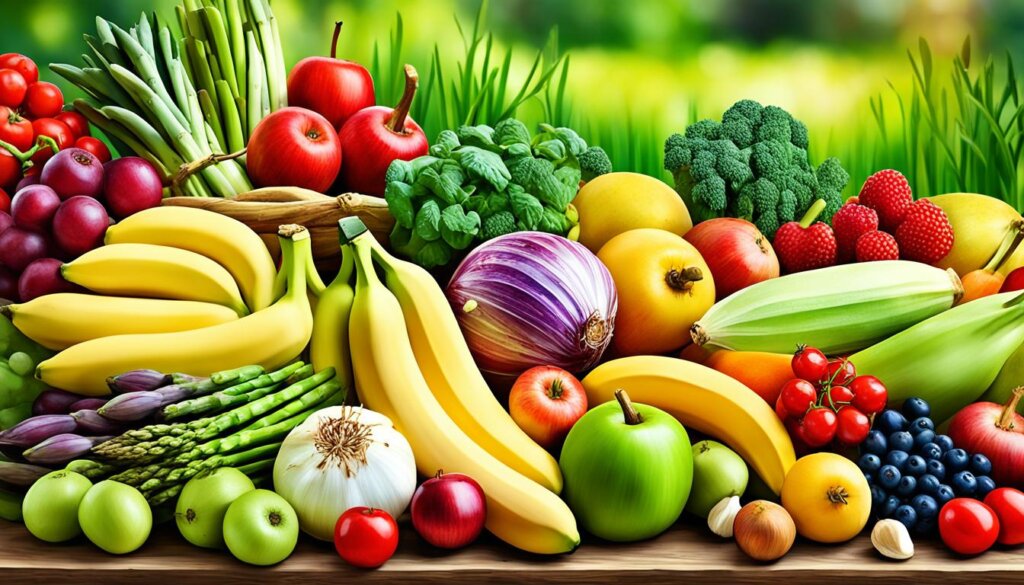
“Prebiotics are the fuel that feeds the beneficial bacteria in your gut, promoting a healthy microbiome and supporting overall health.”
Adding different prebiotic-rich foods to your meals helps feed your gut. This supports your health and well-being.
Other Foods for Gut Health
There are many foods that help your gut health, not just prebiotics. Foods high in fiber like beans, whole grains, vegetables, and fruits feed the good bacteria in your gut. Garlic also helps by fighting off bad bacteria and boosting good ones.
Kimchi, sauerkraut, yogurt, and kefir are great because they have probiotics. These foods add good bacteria to your gut. Bone broth and salmon help by making your gut lining strong.
High-Fiber Foods, Garlic, and Fermented Foods
- Beans, whole grains, vegetables, and fruits are full of fiber that’s good for your gut.
- Garlic fights off bad gut bacteria and keeps yeast in check.
- Kimchi, sauerkraut, yogurt, and kefir give you probiotics for a healthy gut.
Adding different gut-friendly foods to your meals helps keep your gut healthy. Changing your diet slowly is best to avoid any discomfort.
Good gut health is linked to feeling well overall. Eating a diet rich in fiber and fermented foods supports a healthy gut. This is good for your body and mind.
Incorporating Prebiotics into Your Diet
Prebiotics are key for a healthy gut and overall health. There’s no set daily amount needed, but 3-5 grams can boost digestive health and immune function. Eating foods rich in prebiotics helps grow good gut bacteria and improves gut health.
Great sources of prebiotics include:
- Allium veggies like garlic, onions, and leeks, which boost short-chain fatty acids and help with insulin.
- Underripe bananas, full of resistant starch, aid in weight control and gut health.
- Chia seeds, flaxseeds, and beans/legumes, with their prebiotic fibers, fight inflammation and grow good gut microbes.
- Cocoa polyphenols in dark chocolate increase good gut bacteria and boost immune function.
If eating enough prebiotics is hard, think about a prebiotic supplement. But, talk to a healthcare pro first to get advice on dosage and safety.
Eating a mix of prebiotic-rich foods helps your gut, boosts your immune system, and improves your health. A diet with both prebiotics and probiotics works best for your digestive and overall health.
“Incorporating prebiotics into your diet is a simple and effective way to support your gut health and overall well-being.”
Probiotics
Probiotics are key for gut health, just like prebiotics. They are live, good bacteria found in foods like yogurt and sauerkraut. Important strains include Lactobacillus and Bifidobacterium types.
Probiotic supplements can help gut health, but talk to a doctor first, especially if you’re sick or have a weak immune system. Some people take them daily to stay healthy. Acidophilus is a probiotic that helps balance gut bacteria.
When picking probiotic supplements, make sure they have live microbes that are safe. Foods like yogurt and sauerkraut are also good sources of probiotics. Doctors often suggest probiotics after antibiotics to fix gut health.
Prebiotics and probiotics help gut health in different ways. Prebiotics feed good gut bacteria, while probiotics are the bacteria themselves. Fructooligosaccharides are a type of prebiotic.
The gut microbiome is very important, with more bacteria than human cells. Certain probiotics can ease IBS symptoms. VSL#3, a probiotic mix, helps with ulcerative colitis in kids.
More people are using probiotics, especially in Asia and Europe. But, be careful and talk to a doctor before starting them, especially if you have health issues. There are few risks of superinfections, but it’s good to know the facts.
In summary, prebiotics and probiotics are both important for a healthy gut. But, it’s key to know how they work and to talk to a doctor before adding them to your routine, especially if you have health problems.
Conclusion
Eating prebiotics through whole foods is a great way to boost your gut health and digestion. By learning about the benefits of prebiotics, you can make dietary changes. This helps you have a healthy gut microbiome. It also improves your physical and mental health.
Prebiotics are key for a healthy gut microbiome. They help your digestive system work right and keep your immune system strong. They make sure good bacteria like Bifidobacterium and Lactobacillus grow. This stops bad bacteria from taking over, reduces inflammation, and keeps your gut health in check.,,
Adding foods high in prebiotics like onions, bananas, and whole grains to your meals is easy. You might also think about taking prebiotic and probiotic supplements. These changes can help your gut health naturally. By doing this, you’re taking a big step towards better digestive and immune system health.
FAQ
What are prebiotics?
Prebiotics are special fibers that feed your good gut bacteria. They help your gut bacteria make nutrients for your colon cells. This makes your digestive system healthier. They are different from probiotics, which are live bacteria in some foods or supplements.
How do prebiotics differ from probiotics?
Prebiotics are fibers that your body can’t digest but help good bacteria grow. They go to your lower digestive tract to feed the healthy bacteria. Prebiotics and probiotics are both key to your digestive health but are not the same.
What are the benefits of incorporating prebiotics into my diet?
Eating prebiotics can help your gut bacteria grow. It boosts your immune system and keeps your digestive system healthy. It strengthens gut health, increases “good” bacteria, and helps with constipation.
It also helps your immune system, reduces inflammation, and improves bone health by helping with calcium absorption.
Why is the gut microbiome important?
The gut microbiome is the mix of microorganisms in your intestines. It includes bacteria, viruses, and fungi. A diverse gut microbiome can lower the risk of many diseases.
It’s linked to mental health, autoimmune diseases, and more. A healthy gut microbiome is key for your overall health.
What are the symptoms of an unhealthy gut?
An unhealthy gut can cause upset stomach, gas, bloating, and more. It may also lead to weight changes, sleep issues, skin problems, and autoimmune conditions. These issues can come from a diet high in sugar, too much stress, not enough sleep, and antibiotics.
How can I improve my gut health?
Improving gut health can be done through diet and lifestyle changes. Lower stress, get enough sleep, eat slowly, and drink plenty of water. Adding prebiotics or probiotics can also help.
Identify and avoid food intolerances and eat more high-fiber foods, garlic, fermented foods, and collagen-rich foods. These support a healthy gut microbiome.
What are good dietary sources of prebiotics?
Many foods are rich in prebiotics, like veggies, fruits, and whole grains. Chicory root, dandelion greens, Jerusalem artichokes, garlic, onions, bananas, whole oats, and apples are great sources. They have fibers like inulin and FOS that help good gut bacteria grow.
What other foods can support gut health?
Foods high in fiber like legumes, whole grains, veggies, and fruits help your gut microbiome. Garlic boosts gut bacteria diversity with its antimicrobial and prebiotic properties. Fermented foods like kimchi, sauerkraut, yogurt, and kefir add probiotics.
Collagen-boosting foods such as bone broth and salmon also benefit gut health.
How much prebiotics should I consume daily?
There’s no official daily intake for prebiotics, but 3-5 grams can help gut health. Eating prebiotic-rich whole foods supports your digestive and immune systems. If needed, talk to a healthcare professional before taking prebiotic supplements.
What is the role of probiotics in gut health?
Probiotics are live beneficial bacteria in foods like yogurt, kefir, kimchi, and sauerkraut. They can also be supplements. But, talk to a healthcare professional before adding them to your routine, especially if you have severe illnesses or a weakened immune system.
